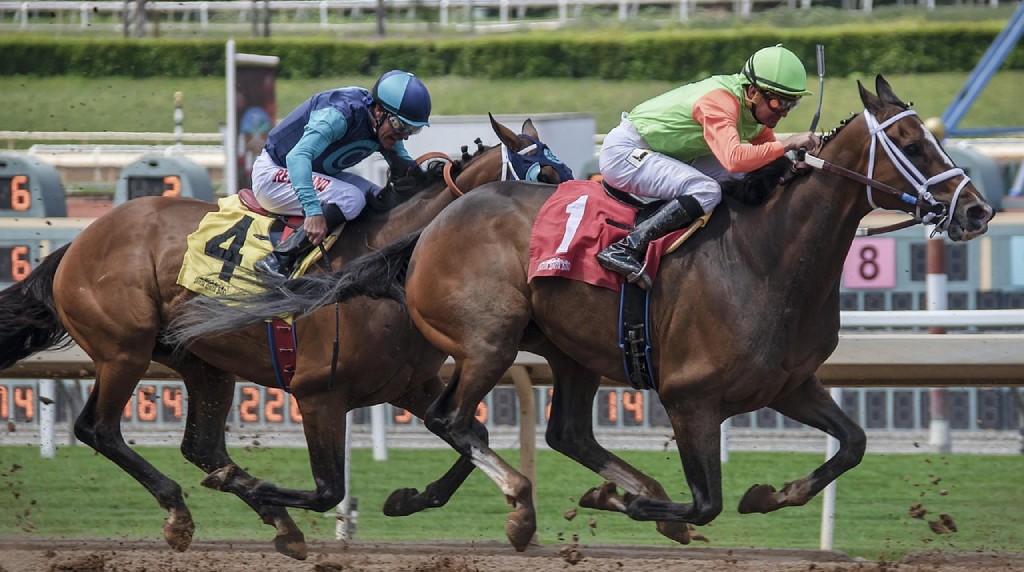Policing AGCs And Betting Shops Down to Local Authorities, Says UKGC
UK industry regulator the Gambling Commission (UKGC) says local authorities have to make sure gambling establishments follow the rules.

Racing remains very popular for sports betting in the UK. @ clarencealford, Pixabay
Key Facts:
- Gambling reform is a priority of the UK’s Labour government
- Changes such as slot stake limits have been introduced of late
- There are concerns that some adult gaming centres (AGCs) and betting shops may not be following the rules
- UKGC’s Tim Miller has told local authorities they must step up
The UKGC pointed out that the power to grant premises licences to operate as adult gaming centres (AGCs) or betting shops is with local authorities in their role as licensing authorities.
In a recent speech, the regulator’s executive director, Tim Miller noted how licensing fees collected by these authorities should be used to pay for inspections.
Questions have been asked about which bodies are responsible for checking on betting shops and AGCs to make sure they are sticking to the rules.
Speaking at the recent Peers for Gambling Reform Gambling Summit, Miller said carrying out inspections of licensing conditions is not within the UKGC’s current remit.
The regulator’s representative also pointed out that UKGC lacks the funding to do so.
Robust Oversight
AGCs have become a common sight on UK high streets, providing slot games and other forms of gambling rather than UK sports betting. Checking up on AGCs properly is therefore an ongoing challenge, but Miller says it is not down to UKGC to ensure this is being done.
In his speech, Miller said: “As a fairly small regulator based in Birmingham, the Gambling Commission is not in a position to police every gambling establishment up and down the nations of Britain. “
“Any change to that position would require the government to introduce a very different funding model for the Commission.”
Miller went on to note UKGC provides a “robust oversight of the licensed entities that operate those premises” and also provides the appropriate guidance to local authorities.
He said: “We value our relationship with local authorities as our co-regulators. But it can not be the role of the national regulator to fill any gaps left in local regulation when less than half of licensing authorities are conducting any premises inspections that the licensing fee funds them to perform.”
More Regulation to Come
Industry groups such as the Betting and Gaming Council, a standards body that is sometimes described as a pressure group, have pushed back against calls for an increase in regulation.
Former prime minister Gordon Brown is among the major public figures to call for an increase in taxation for betting companies in the UK.
And UKGC executive director Miller suggested there could be more changes to the industry to come in the wake of the Gambling Act Review White Paper.
He said: “There will always be more to do and I do not expect that the implementation of the White Paper will be the end of the story when it comes to reform of gambling regulation in Britain.”
UK gambling companies are preparing to make their first payments towards the new statutory levy, which is expected to rise in £100 million.
This week saw a major protest by the British horse racing industry against a proposed tax rise on betting on the sport, with strike action causing meetings at four venues – Lingfield Park, Carlisle, Uttoxeter and Kempton Park – to be rescheduled due to a strike.

 F1 Is Back, Starting With Netflix’s Drive to Survive on Friday
F1 Is Back, Starting With Netflix’s Drive to Survive on Friday
 Leading UK Betting Site Suffers From Costly Friday Downtime
Leading UK Betting Site Suffers From Costly Friday Downtime
 Start Playing the Whole Lotta Honey Slot on 19 February
Start Playing the Whole Lotta Honey Slot on 19 February
 Gambling Paid Partnerships and Collaborations Banned on X
Gambling Paid Partnerships and Collaborations Banned on X